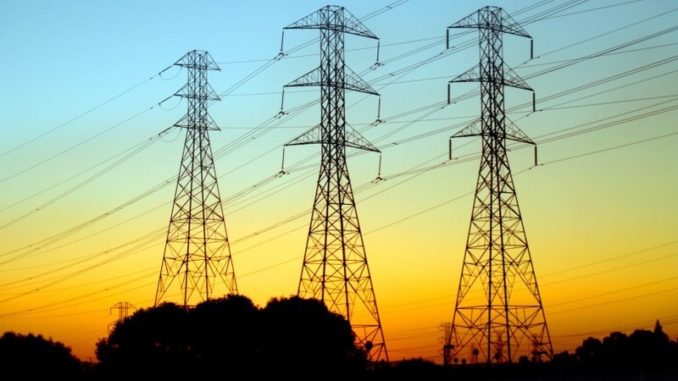
The Nigerian government has clarified that its planned electricity subsidy for tertiary educational institutions may only apply to 37 federal universities and seven teaching hospitals affiliated with some of them.
The government also said the private businesses inside the selected institutions will not benefit from the subsidy.
The proposed subsidy is in response to the groans by universities and teaching hospitals that the amount they are being charged by electricity distribution companies is unsustainable.
The proposed 50 per cent subsidy was first mentioned by the Minister of State for Health, Tunji Alausa, who announced it on Thursday at the National Neo-Psychiatric Hospital in Barnawa, Kaduna State.
He also shared the information on his X handle.
Dangote Refinery
“In alignment with President @officialABAT, GCFR’s mission to provide comprehensive and effective healthcare to Nigerians, the Federal Government will be offering a 50% subsidy on energy costs for all federal facilities. We hope this subsidy will support our facilities in delivering round-the-clock healthcare and enhance their service delivery.”
However, he did not provide further details of the subsidy. When asked to clarify Mr Alausa’s statement, his spokesperson, Mojiyin Adebajo, said, “No comment for now. A further announcement with clarification will be shared later.”
However, the spokesperson of the Ministry of Power, Bolaji Tunji, provided the details in response to PREMIUM TIMES’ enquiry.
“What the honourable minister of power said was there would be a subsidy and could be as much as that or lower,” Mr Tunji said. “So if the honourable minister of health said so, then further clarification must be sought.”
The power ministry spokesperson said the initiative will be part of the federal government’s Energizing Education Programme (EEP) and will only cover the essential services of the institutions.
“You know that within some of these institutions, there are some commercial entities and privately run businesses that are charging customers for services rendered, so the government would not extend the subsidy to these entities,” Mr Tunji said.
He said the Minister of Power, Adebayo Adelabu, has requested accurate data from the institutions that would enjoy the subsidy.
Beneficiaries
Minister of State for Health and Social Welfare, Tunji Alausa (PHOTO CREDIT: @DrTunjiAlausa,https://twitter.com/DrTunjiAlausa/status/1787537835601375325/photo/1 )
Minister of State for Health and Social Welfare, Tunji Alausa (PHOTO CREDIT: @DrTunjiAlausa)
Although Mr Alausa said the subsidy would apply to “all federal facilities,” Mr Tunji explained that EEP is currently structured to support 37 federal universities and seven teaching hospitals; an indication that the policy has not been fully synchronised between the relevant ministries and agencies.
Audience Survey
“The EEP is an initiative of the federal government of Nigeria being implemented by the Rural Electrification Agency, an agency of the Ministry of Power, which seeks to provide off-grid, dedicated and independent power plants, as well as rehabilitation of existing distribution infrastructure, to supply clean and reliable power to 37 federal universities and seven affiliated university teaching hospitals,” he said.
“In addition, it will provide street lighting for illumination and safety, as well as a world-class renewables training centre at each of the EEP beneficiary institutions, and conduct STEM internships for selected female students.”
“We await implementation,” Hospital, College say
In July, PREMIUM TIMES reported that the College of Medicine of the University of Lagos (CMUL) and Lagos University Teaching Hospital (LUTH) cried out over the “outrageous electricity bill” charged by Eko Electricity Distribution Company (EKEDC) after the hike in electricity tariff for Band A customers. Other teaching hospitals across the country raised similar concerns.
The healthcare institutions told PREMIUM TIMES that they were presented with a bill of about N280 million for May instead of the less than N100 million they used to pay.
Following the health ministry’s announcement, this newspaper contacted the two institutions again. They commended the initiative but said the implementation had not started.
The Provost of CMUL, David Oke, and Chief Medical Director (CMD) of LUTH, Wasiu Adeyemo, told PREMIUM TIMES that the initiative, when implemented, would be a huge relief for their institutions.
Mr Oke noted that “if we have to continue paying what we paid in the last three months, it would be impossible to continue running the college because we don’t generate revenue, unlike other institutions.”
The professors said as public institutions, they await the implementation of the policy, as they can no longer afford the current electricity charges.
“The point is that the government has listened to our cries, especially the reason we have public hospitals is to serve the public. More than 90 per cent of Nigerians can’t afford to go to private facilities. So there is nothing you can do without electricity.
“Electricity subsidy will be a huge relief. We commend President Bola Tinuby, the Ministry of Health and Power,” Mr Adeyemo said.
“They have also promised us that hospitals will need renewable energy. Some hospitals will benefit this year and others next year.”
END

Be the first to comment